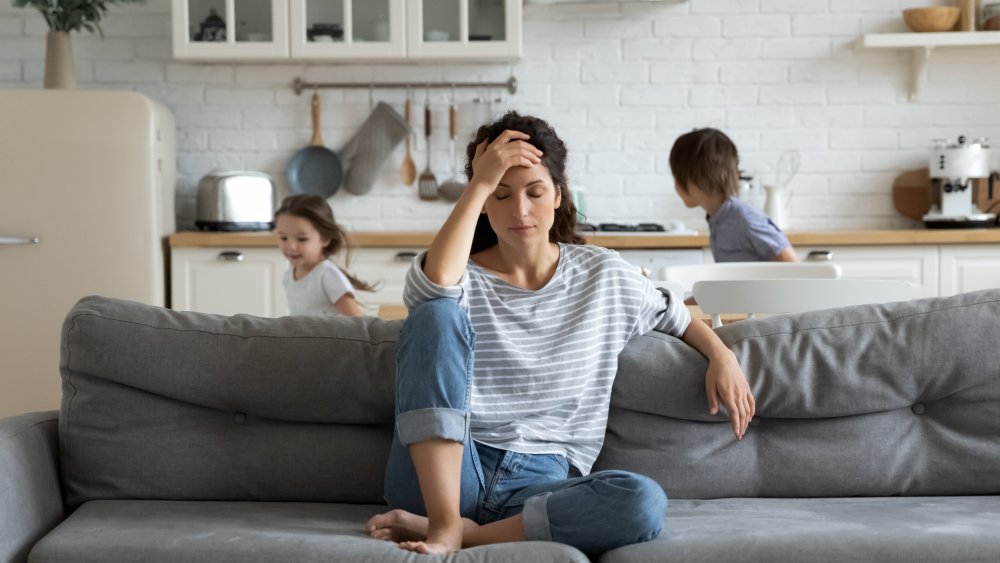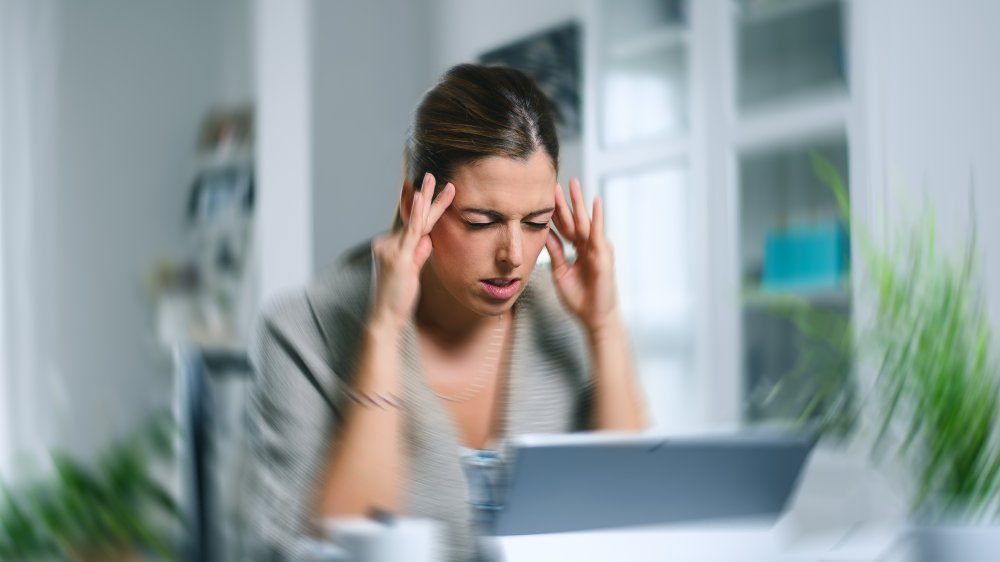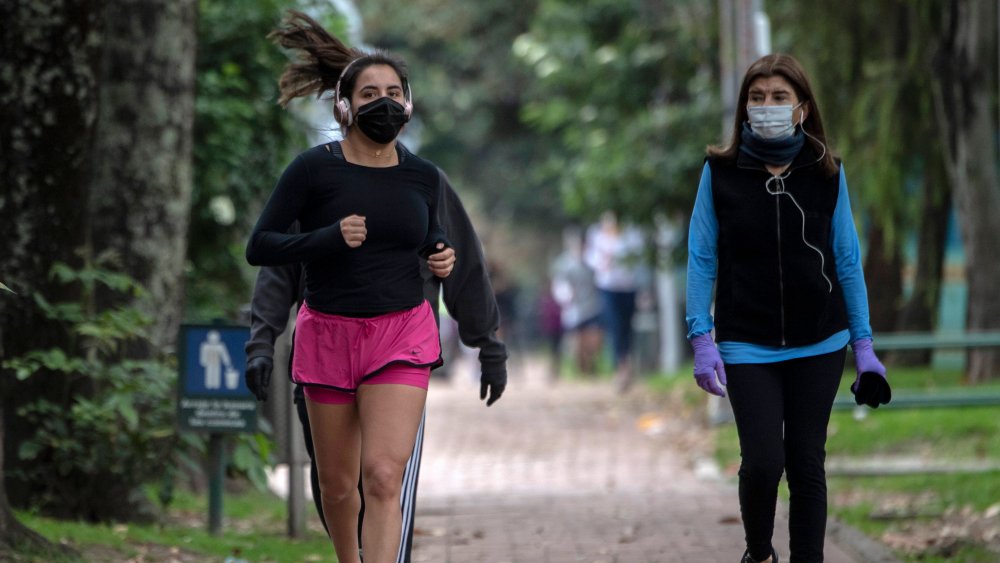The Truth About Quarantine Fatigue
When was the last time you set foot outside? Treated your hair to a color or cut? Hung out with friends and family? Went to the supermarket or indulged in a bit of brick-and-mortar retail therapy? In other words, when was the last time you did anything we used to take for granted? If your answer is "too long ago" and you're starting to view the home you once loved as a prison, you're most likely starting to feel quarantine fatigue.
Quarantine fatigue sounds like a first-world problem, but it's a real thing. For many people, staying home isn't just boring, it can be dangerous. Victims of domestic abuse no longer have safe havens like school, work, or community centers to go to, because these places are closed (via UVA Today). Shuttered businesses means that the number of jobless people across the country has risen by more than 20.5 million in April, and is now at 14.7 percent (via BBC). And a recent poll by the Kaiser Family Foundation found that about half of Americans say their mental heath has been affected by the pandemic (via The Atlantic).
Quarantine fatigue means staying at home is no longer making us happy
But for most of us, behavioral and public economist Dr. Syon Bhanot explained for The New York Times that quarantine fatigue can be explained by "diminishing marginal utility," which simply means you've ticked off your bucket list of things that you can do at home to keep you happy, or at least satisfied. Your children could now be driving you crazy, and you're now scraping the bottom of your home entertainment barrel, which explains your desire to break free; unfortunately, Bhanot says people aren't into the idea of sitting around and doing nothing either.
Bhanot quotes one study that explains: "...researchers found that when subjects were told to sit in a room and do nothing, they chose to give themselves electric shocks rather than pass the time in silence." In a separate study conducted in Kenya, Bhanot and two other researchers found that respondents were more satisfied by working for payment, than from being idle and receiving the same amount of money. And she quotes a third study showing that people got more satisfaction from socializing at work and after work, than from doing chores at home, which makes up the bulk of quarantine-related activities.
There are small ways to cope with quaratine fatigue
To combat quarantine fatigue, Mary Fristad, PhD, ABPP, a psychologist at Ohio State University's Wexner Medical Center suggests sticking to a routine or schedule, and to avoid unhealthy coping mechanisms. "The amount of alcohol purchases has gone up dramatically since COVID-19 hit. It may be that people simply aren't going out to bars or restaurants, but there is significant concern that some folks are turning to alcohol or other drugs as a means of managing their mood during this time," she told Healthline.
It's also important to make time for yourself, particularly since with everyone staying at home, households probably feel more crowded than ever before. "It's really important to maintain some alone time. It differs from person to person in how much we need, but we all need the ability to decompress," Fristad says. And if that means beating quarantine fatigue by going out responsibly, which means wearing a mask, and maintaining social distancing, it may go a long way in helping your mental health.


